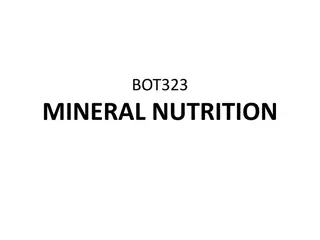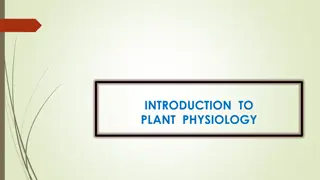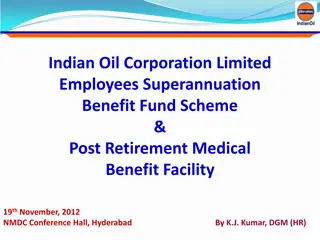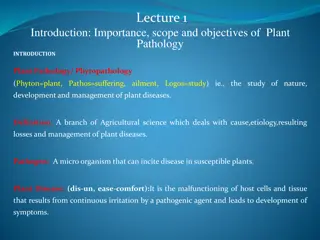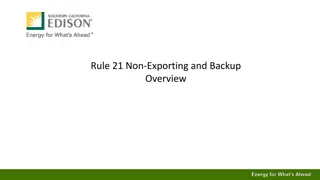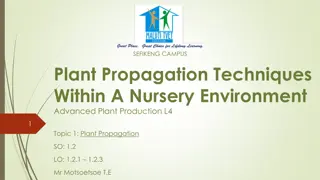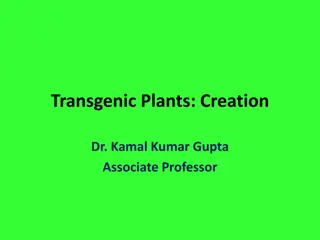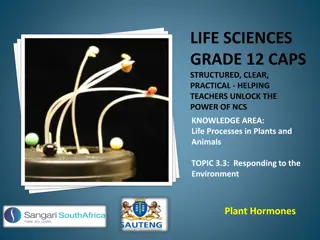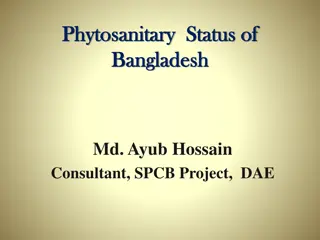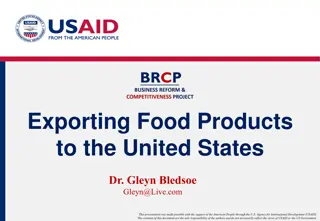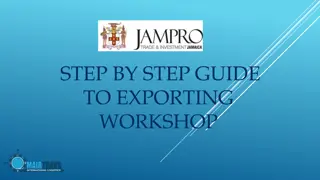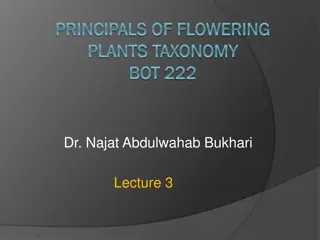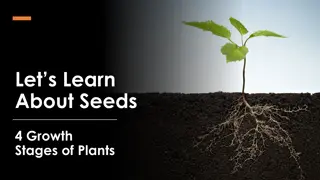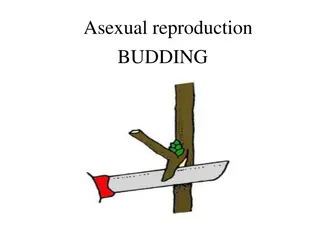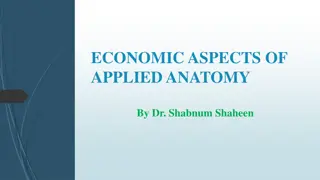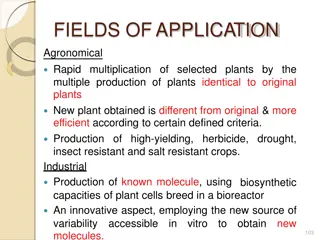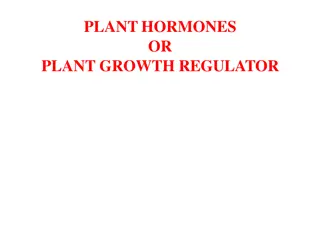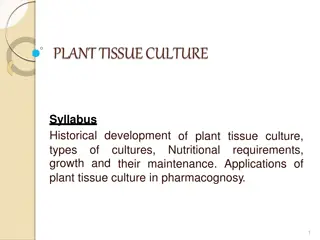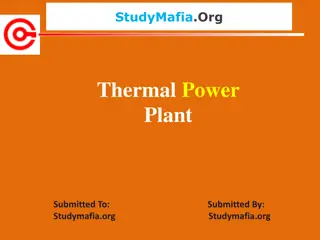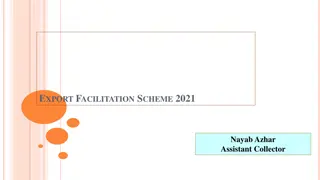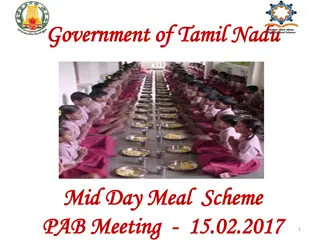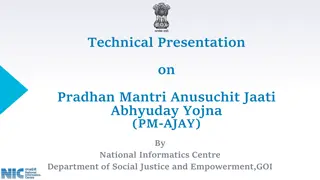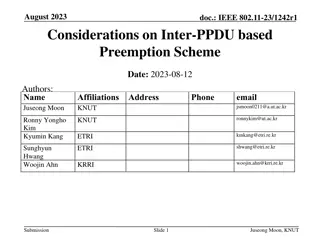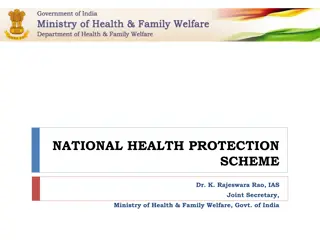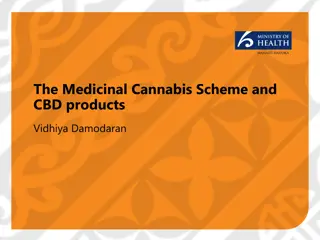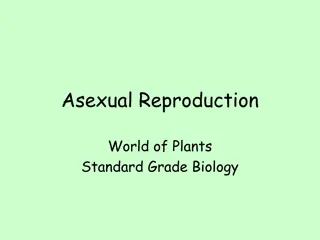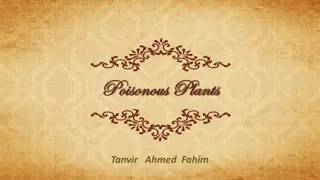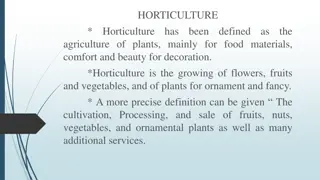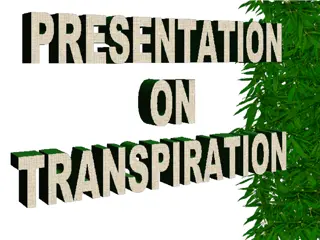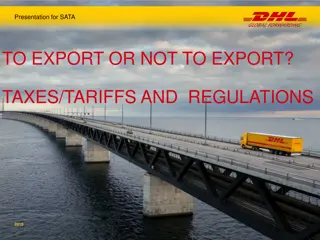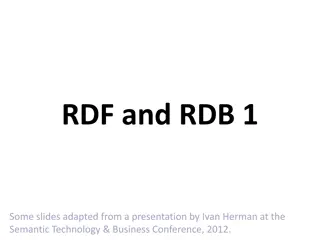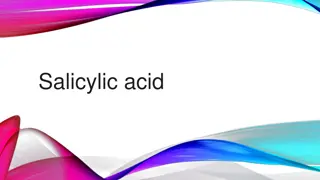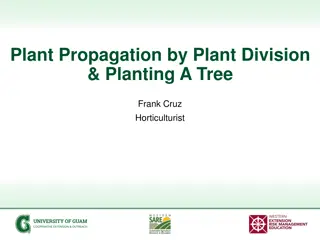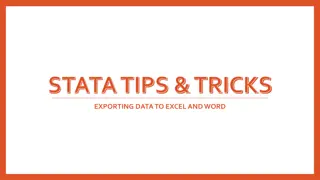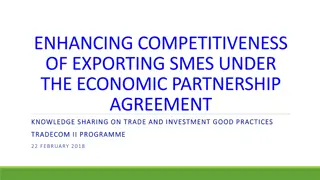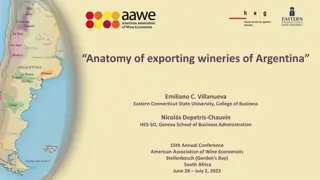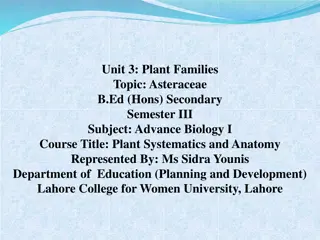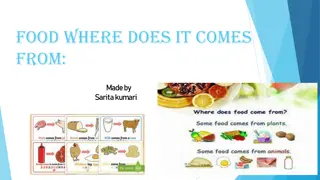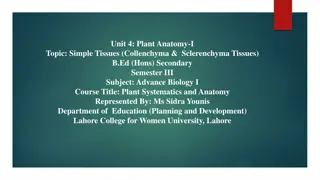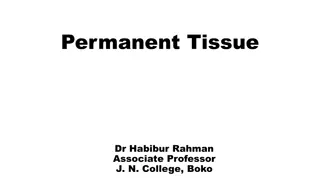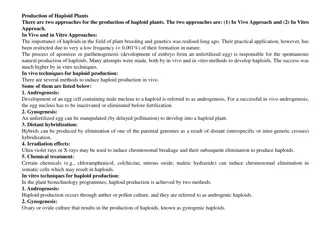Exporting Plants and Plant Products: A Guide to PHEATS Scheme
Explore the journey of exporting plants and plant products in England & Wales, including the Plant Health Exports Audited Trader Scheme (PHEATS). Understand the roles, requirements, and benefits of PHEATS in facilitating the exports of high-frequency produce and cut flowers. Learn about the steps involved, eligibility criteria, and how to streamline the phytosanitary inspection process for a quick turnaround of Phytosanitary Certificates.
Download Presentation

Please find below an Image/Link to download the presentation.
The content on the website is provided AS IS for your information and personal use only. It may not be sold, licensed, or shared on other websites without obtaining consent from the author. Download presentation by click this link. If you encounter any issues during the download, it is possible that the publisher has removed the file from their server.
E N D
Presentation Transcript
Exports The Journey 1
Content In this module we will explore how the trade and movement of plants (and plant products) is exported in England & Wales We will also learn about the different stages of exports and what must be done by all the parties involved for a successful export You will also find out about the underlying principles of the Plant Health Exports Audited Trader Scheme (PHEATS)
International plant health learning objectives Understand: What is PHEATS The role you will play in PHEATS
Export Journeys Non PHEATS This is the general export journey of plant health regulated goods, some commodities may have slightly different journeys. Do my goods need a phytosanitary certificate What are the import requirements Do I need laboratory tests or growing season inspections Pre Export Register with APHA to make export applications Arrange an export inspection with the PHSI Receive phytosanitary certificate Application Arrange transport and Customs declarations Export of goods Export 4
Export Journeys PHEATS Below highlighted in red is the main difference between exports covered by the PHEATS scheme and those that aren t. Do my goods need a phytosanitary certificate What are the import requirements Do I need laboratory tests or growing season inspections Pre Export Register with APHA to make export applications Submit export applications (online) Authorised person will conduct export inspection (You) Receive phytosanitary certificate Application Arrange transport and Customs declarations Export of goods Export 5
What is PHEATS? PHEATS (Plant Health Exports Audited Trader Scheme) is designed to facilitate the exports of high frequency produce and cut flower consignments. It works by delegating the function of the phytosanitary export inspection to a designated authorised person who has undergone sufficient training to ensure that exported consignments remain free from any quarantine pest and diseases. For eligible businesses there are several steps involved for a business to be a part of the scheme and appoint a Person Responsible (PR) as well as an authorised person(s) to be a part of the scheme to conduct the inspections. Benefits include reduced inspections fees and a simplified process for the phytosanitary inspection which will save time for businesses who require a quick turnaround of the Phytosanitary Certificate. Registration & Applications Eligibility Training Audits 6
Eligibility To be eligible to join PHEATS, an exporting business: Export fresh produce and / or cut flowers (the scheme does not apply to produce or cut flowers that are prohibited entry to the importing country) Apply for export services online Identify a Person(s) Responsible for overall management of the scheme, as well as authorised persons who will conduct the official export inspections. There must be a sufficient number of authorised personnel to conduct the official export inspections required under PHEATS. Create and implement an approved Biosecurity Control Management Plan (BCMP) for PHEATS Exports of other regulated commodities, such as plants for planting and machinery will require the usual official inspection by APHA or other delivery bodies. If you are not eligible for the scheme then exports can still be undertaken via the usual exports scheme in that the competent authority will undertake the inspections. All authorised persons who conduct export inspections must pass all the training modules provided 7
Registration & Applications Businesses will be required to submit a Biosecurity Control Management Plan (BCMP). This includes: Applicant details Site details incl. site plan & holding areas Commodities to be exported Person(s) responsible Authorised persons Training records Inspection facilities Inspection records Separate applications for each site that wants to be included in the scheme must be submitted, even if they are from the same business. This will include any direct suppliers who export on a business behalf. There will be an external guidance document that covers the registration process and explains the scheme in more detail. Site audits will be undertaken to ensure businesses meet the requirements. These audits will both be announced and unannounced. 8
Training Training will be conducted online but with face to face assessments as part of the authorisation visits Every authorised person and Person Responsible must complete the training before being authorised to conduct inspections that are part of the scheme. There are several modules to training including: Pest and disease symptom recognition Understanding of export requirements of the relevant importing country Inspection methodologies Units of inspections Tolerances for soils, seeds and weeds Inspection area When to inspect PC validity Record keeping Finding a pest Consignment rejections Additional resources available 9
Audits Audits will be carried out by PHSI on authorised persons and the business premise to check and review the implementation of the BCMP. A minimum of one authorised person must be available at each audit. Audit frequency will vary depending on the compliance of the PRs, authorised persons and operating businesses. Unannounced audits, may also be undertaken by APHA. Audits will be recorded internally by APHA but outcomes of any audits will also be provided to the exporting business. Should any non-compliances or non-conformities be identified then corrective measures will need to be implemented within the given timeframe. 10
PHEATS Cont Overall as an authorised person you will be responsible for ensuring that any inspection of an exported consignment meets the importing country s import requirements and as such will be providing this assurance during the export application procedure verifying that all the relevant checks have been completed. PHEATS is only currently available for: Exports of fruit, vegetables and cut flowers For exports to the European Union (EU) and Northern Ireland (NI) For PHEATS exports to Northern Ireland will need to meet the same requirements as exports to the European Union (EU). 11
Export Journeys PHEATS Do my goods need a phytosanitary certificate What are the import requirements Do I need laboratory tests or growing season inspections Pre Export Register with APHA to make export applications Submit export applications (online) Authorised person will conduct export inspection (You) Receive phytosanitary certificate Application Arrange transport and Customs declarations Export of goods Export 12
Export Journeys Each stage of an export can be further broken down into several steps, which will be covered in more detail. All information contained within this part of the training will be in relation to the PHEATS process. Although the main element of PHEATS is for the authorised person to conduct the export inspection. Each authorised person will have to demonstrate a fundamental knowledge of all the steps involved in the exports process to ensure that any consignment exported under PHEATS can meet the import requirements of the importing country and can satisfy the certifying statement on the phytosanitary certificate. 13
Knowledge Test Please visit the below link to complete the knowledge test for this module: PHEATS The Journey Knowledge Test https://forms.office.com/Pages/ResponsePage.aspx?id=UCQKdycCYkyQx044U38RAvJ7GY98IcdOvJfSZ- UDeKFURU5YOFVaUTUyR0ZXWjRQMUw0RU05OEJaNi4u 15


